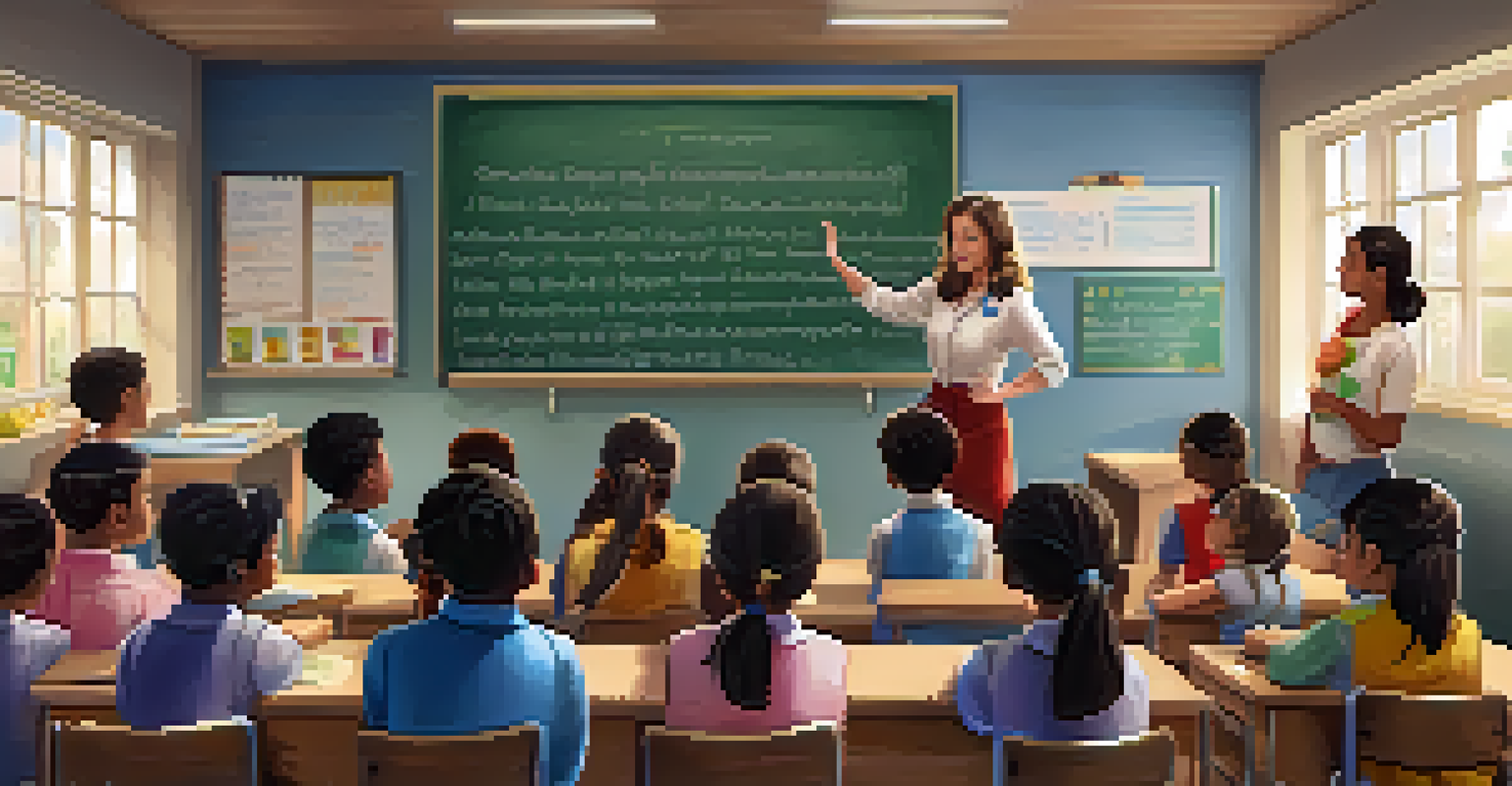The Importance of Vaccinations: Protecting Student Health

Understanding Vaccinations: What They Are and How They Work
Vaccinations are medical treatments designed to prepare the immune system to fight specific infections. By introducing a harmless part of a virus or bacteria, vaccines help the body recognize and combat these pathogens in the future. Think of it like a dress rehearsal for the immune system, allowing it to practice before the real performance.
Vaccines are the tugboats of preventive health.
When students receive vaccinations, they are not just protecting themselves but also contributing to the safety of their peers. This collective immunity, known as herd immunity, occurs when enough individuals are vaccinated, making it difficult for diseases to spread. It’s like creating a safety net within the school community.
In essence, vaccinations are a crucial line of defense, reducing the risk of outbreaks that can disrupt education and health. Schools can maintain a healthier environment, allowing students to focus on learning rather than worrying about potential illness.
The Role of Vaccines in Preventing Outbreaks in Schools
Vaccinations play a pivotal role in controlling infectious diseases that can spread rapidly in a school setting. For instance, diseases like measles and whooping cough can easily circulate among students if vaccination rates dip. By ensuring that students are vaccinated, schools can prevent these outbreaks and keep the learning environment safe.

Consider the story of a school that experienced a measles outbreak due to low vaccination rates. The situation not only affected the health of students but also led to school closures and disrupted learning. This example highlights how critical vaccinations are in maintaining a healthy school atmosphere.
Vaccinations Protect Community Health
By achieving high vaccination rates, schools help create herd immunity, safeguarding students and the wider community from outbreaks.
Preventing outbreaks through vaccinations not only protects individual students but also safeguards the entire community. By working together to achieve high vaccination rates, schools can create a bubble of protection, minimizing the risk of widespread illness.
How Vaccinations Contribute to Long-Term Student Health
Vaccinations are not just a one-time event; they are an investment in the long-term health of students. By protecting against serious diseases, vaccinations help ensure that children have the opportunity to thrive both academically and socially. Healthy students are more likely to attend school regularly and engage fully in their education.
An ounce of prevention is worth a pound of cure.
In addition to immediate protection, vaccines can also prevent chronic health issues that may arise from infectious diseases. For example, some diseases can lead to complications like pneumonia or meningitis, which can have lasting effects on a child's health. Vaccination helps mitigate these risks.
Ultimately, the benefits of vaccinations extend beyond individual health; they contribute to a healthier, more resilient future generation. By prioritizing vaccinations, parents and schools are setting their students up for success.
Addressing Common Misconceptions About Vaccinations
Despite the proven benefits of vaccinations, misconceptions still exist that can deter parents from vaccinating their children. Some people worry about vaccine safety, often fueled by misinformation circulating on social media. It’s essential to address these concerns with factual information from trusted sources.
For instance, extensive research has shown that vaccines are rigorously tested for safety and effectiveness before approval. Side effects, when they occur, are typically mild and temporary. By understanding the science behind vaccinations, parents can make informed decisions regarding their child's health.
Vaccinations Ensure Long-Term Wellness
Vaccines are essential for preventing serious diseases, allowing students to thrive academically and socially in a healthier environment.
Engaging in open conversations about vaccines can help dispel myths and reinforce the importance of vaccination. Schools can play a vital role by providing resources and hosting informational sessions for parents and guardians.
The Importance of School Policies on Vaccination
School policies regarding vaccinations are essential for ensuring a safe environment for all students. Policies that require vaccinations for school attendance help maintain high immunization rates and prevent outbreaks. These guidelines are not just rules; they are protective measures for the entire school community.
When schools implement strict vaccination policies, they send a clear message about the importance of health and safety. This can encourage families to prioritize vaccinations for their children, knowing that they are part of a larger effort to protect everyone. It’s akin to a team working together towards a common goal.
Moreover, these policies can help schools identify and support students who may need assistance in accessing vaccinations. By facilitating access, schools can ensure that no child is left vulnerable due to financial or logistical barriers.
Community Responsibility: Everyone's Role in Vaccination
Vaccination is a community effort that requires the participation of everyone—parents, educators, healthcare providers, and students. By working together, communities can create an environment where vaccinations are prioritized and celebrated. This sense of collective responsibility fosters a culture of health and safety.
For example, community events such as vaccination drives can make immunizations more accessible and convenient for families. When communities come together to promote health, they not only protect their children but also strengthen community bonds. It’s a win-win scenario.
Community Effort for Vaccination Success
Vaccination is a collective responsibility, requiring collaboration among parents, schools, and healthcare providers to promote health and safety.
Encouraging open dialogue about the importance of vaccinations within the community can also lead to better understanding and acceptance. When everyone plays their part, the impact of vaccinations can be felt far and wide.
The Path Forward: Encouraging Vaccination Among Students
As we look to the future, encouraging vaccination among students remains a top priority for schools and communities. This effort can involve innovative strategies, such as integrating vaccination education into health classes and hosting fun, informative events. By making learning about vaccines engaging, we can foster a positive attitude towards immunization.
In addition, schools can collaborate with local health organizations to provide easy access to vaccinations on-site. By removing barriers and making vaccinations convenient, more students are likely to participate. It’s about creating a supportive environment that emphasizes the importance of health.

Ultimately, the goal is to instill a lifelong understanding of the value of vaccinations in students. As they grow, they will carry this knowledge with them, becoming informed adults who prioritize health for themselves and their future families.